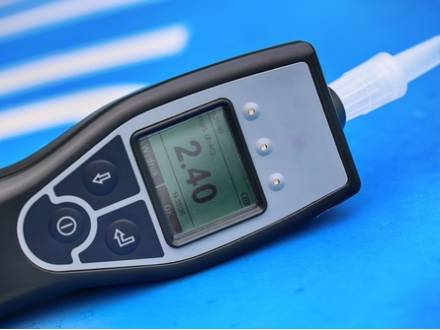2591 Dallas Parkway, Suite 207A, Frisco, TX 75034
Free Consultations
469-333-3333
 |
DO I HAVE TO GO TO TRIAL IN TEXAS? |
The Science Behind Breathalyzers – And the Inaccuracies | Texas
 Breathalyzer machines are commonly used by law enforcement to measure a person’s blood alcohol concentration (BAC) if that person is suspected of driving while intoxicated (DWI). While breathalyzer devices are considered the gold standard and are used nationwide, there is significant pushback regarding their reliability and accuracy.
Breathalyzer machines are commonly used by law enforcement to measure a person’s blood alcohol concentration (BAC) if that person is suspected of driving while intoxicated (DWI). While breathalyzer devices are considered the gold standard and are used nationwide, there is significant pushback regarding their reliability and accuracy.
In the state of Texas, the laws surrounding the use of breathalyzers are in the Texas Breath Alcohol Testing Regulations. If you are facing DWI charges, speaking to a Fairview, TX DWI attorney from the Law Offices of Biederman & Burleson P.L.L.C. can be beneficial. Your attorney will know how to find the potential inaccuracies associated with a breathalyzer machine and any other inconsistencies associated with your charges.
The Science of Breathalyzer Machines
A breathalyzer machine measures blood alcohol content, which roughly gauges a person’s intoxication by measuring the percentage of alcohol in the bloodstream. When alcohol is consumed, it is absorbed through the lining of the stomach and finds its way to the blood. Some of the alcohol evaporates, moving into the lungs as the blood passes through the lungs.
The breath alcohol ratio to blood alcohol is 2,100:1, which means that 2,100 ml of breath should theoretically have the same level of alcohol as 1 ml of the person’s blood. Alcohol vapor in the individual’s breath reacts with potassium dichromate in the breathalyzer, turning the solution green. An electric current results from this color change, and the breathalyzer machine converts that current into a number that determines BAC.
In every state except Utah, the BAC limit is 0.08 percent. A 0.08 BAC reading means there are 0.08 grams of alcohol per 100 ml of blood. A BAC between 0.06 and 0.10 generally results in lowered inhibitions, a drop in alertness, relaxation, and reduced coordination. A BAC between 0.11 and 0.20 can result in inappropriate behaviors, shifts in mood, and mania.
When the BAC reaches 0.21 to 0.30, an individual may be aggressive or depressed and may exhibit impaired reasoning and vision. Unconsciousness or coma occurs from 0.31-0.40, and a BAC over 0.41 is potentially fatal. Of course, every person reacts differently to alcohol, so this is a very generalized description.
What Can Affect the Accuracy of a Breathalyzer Reading?
There are many different factors that can affect the accuracy of a breathalyzer. The temperature, the health of the person being tested, whether the machine has been properly calibrated and maintained, and whether the officer administering the test has been properly trained and follows the instructions to the letter are just a few of these factors. The volume of air a person exhales can also affect the accuracy of the test; a person in poor physical condition is unlikely to be able to exhale as much as a person in peak physical condition. Other factors that affect BAC include:
-
Females typically have less of the enzyme that metabolizes alcohol.
-
Those with higher body fat will have a higher BAC because fat does not absorb alcohol.
-
The use of over-the-counter, prescription, or illegal drugs can affect how the body metabolizes alcohol.
-
Whether the individual ate prior to drinking can have an effect on BAC; food in the stomach slows the absorption of alcohol.
-
Those on a strict Keto diet may have falsely high BAC readings.
-
Individuals with diabetes produce acetone, which is detected as alcohol by some breathalyzers.
-
Gastroesophageal reflux disease (GERD) can cause alcohol from the stomach to regurgitate into the mouth, resulting in a falsely high BAC reading.
Contact a Collin County, TX DWI Lawyer
If you have been charged with DWI in Texas, you must take these charges very seriously. The penalties and consequences for a DWI can follow you for many years, making it difficult to obtain employment and taking your life in an unwanted direction. A Frisco, TX DWI attorney from the Law Offices of Biederman & Burleson P.L.L.C. will work hard to make a difference in the outcome of your charges.
Our attorneys have more than 25 years of combined experience and more than 500 trial victories in DWI cases. Both attorneys are certified by the NHTSA to administer Standardized Field Sobriety Tests. Call 469-333-3333 today to schedule your free consultation.


 600+ DWI & CRIMINAL DEFENSE TRIALS
600+ DWI & CRIMINAL DEFENSE TRIALS
















